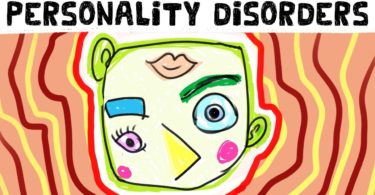Researchers have advised that high daily doses of vitamin E and C taken together reduce the risk of Alzheimer’s disease among elderly people .
A new US study noted that , taken in a supplement form and not in a lower dose , multivitamin , the vitamins anti-oxidant properties appear to offset the build up of so called free radicals that are believed to damage cells and lead to the debilitating brain disease .
PREVENTION AND SELF HELP:
If the cause is related to high aluminium levels (not proven ), then cooking in stainless steel pots is a sensible precaution . Counseling especially for the relatives may help with this distressing condition .
ALTERNATIVE THERAPIES :
Hebal medicine ; Rosemary tea helps circulation especially of the nervous system , “Ginkgbiloba “(maiden hair tree) is a herb often used for memory loss . “acupuncture “ helps to reduce stress and improve learning .
Orthodox treatment : diagnosis is often confirmed with an MRI ( magnetic resonance imaging ) scan which reveals loss of the normal pattern of the brain surface , there is no known cure but treatment is given to relieve and reduce symptoms .
EXERCISE AND ALZHEIMER’S DISEASE :
Researchers have advised that high daily doses of vitamin E and C taken together reduce the risk of Alzheimer’s disease among elderly people .
A new US study noted that , taken in supplement form and not in a lower dose , multivitamin , the vitamin’s anti-oxidants properties appear to offset the build –up of so called free radicals lead to the debilitating brain disease brain disease . But researchers cautioned this was an observational study and a full scale controlled trial was needed . Researchers have said that the best way to treat Alzheimer’s is to emphasis regular exercise and a healthy environment , even gardening can reduce depression and ease anxiety in some Alzheimer’s patients . Researchers looked at 153 patients over several years , some patients whose symptoms varied in severity,
Were randomly assigned to an exercise , regime that focused on strength , balance and flexibility training for about 30 minutes a day the patients went for walks , stretched or used light hand weights for quick exercises that they could do at home , the people providing care usually a spouse or son or daughter , were also taught a number of techniques to encourage and help with the exercise program and to make better responses to behavioral problems , compared with a control group that received “ routine “ care , the patients who exercised were in better physical shape and had lower rates of depression , when they followed up 2 years later , the improvements had not dissipated . Patients in the exercise group were still physically active , had more pleasant interactions with people caring for them and were less depressed . In the control group , patients who worked out regularly also showed fewer signs of physical frailty , which made them less prone to falls , fractures and hospitalization .
Research team leader Dr.Linda Teri , said these patients were much better off both physically and emotionally . They spent less time in bed and more time being active , the intervention really changed their day to day functions and improved their mood , over all they were happy and happier .
The mental degeneration caused by Alzheimer’s is very distressing for family members to witness .
Alzheimer’s disease may disrupt normal thinking and memory by blocking these messages between nerve cells , onset of this disease is insidious and subtle .
Lapses of Memory : initially the patient experiences loss of initiative and lapses of memory . As the disease progresses , inexplicable mistakes are made in the everyday activities , dress , appearance and person hygiene is neglected . Patient may oscillate between apathy and unprovoked aggression .
About a million Americans suffer from Alzheimer’s disease . It usually begins after 60 and risk goes up with age . Alzheimer’s is a slow disease , starting with mild memory problems and ending with severe brain damage . course of the disease varies from person to person , on an average patients live up to 8-10 years after they are diagnosed . Although drugs can temporarily improve memory , at the moment , there is no treatment that can atop or reverse the degenerative process .
Alzheimer’s disease is the common form of dementia ( a brain disorder that seriously affects a person’s ability to carry out daily activities ) among other people . It involves the parts of the brain that control thought , memory and language , there is no cure .
Alzheimer’s disease is named after Dr. Alois Alzheimer , a German doctor . In 1906 he noticed changes in the brain tissues of a woman who had died of an unusual mental illness , Dr. Alzheimer found abnormal clumps ( now called neurofibrillary tangles ) . Today , these plaques and tangles are considered hallmarks of this disease , also there are other changes , like loss of nerve cells in areas of the brain , that are vital to memory and other mental abilities . these are also lower levels of chemicals in the brain that carry complex messages back and forth between nerve cells .
Ralph Martins of Edith Cowan university , who specializes in Alzheimer’s and aging , said that men with lower levels of testosterone were found to have higher levels of beta amyloid protein that is linked to Alzheimer’s . Beta amyloid protein is a toxic substance that can kill neurons in the areas of the brain that are important for lerning and memory and is widely thought to lead to Alzheimer’s . Researchers speculate that the gradual decrease in testosterone levels , that occurs with age may explain why Alzheimer’s disease occurs in late life, other studies have found that oestrogen appears to protect women from the disease –14 out of 15 epidermiological studies conducted in last 10 years have found that hormone replacement therapy can reduce a women’s risk of developing Alzheimer’s by as much as 50 % . In men , testosterone is produced in the testes , the reproductive glands that also produce sperms , as men age their testes often produce some what less testosterone than they did during adolescence and early adult hood , when production of this hormone peaks ., with in the body , testosterone tends to bind with the sex hormone binding globulin , but some testosterone remains freely circulating in the blood stream , unlike the globulin –bound form of the hormone , the testosterone can circulate in to the brain and affect the nerve cells , “ it is quite possible that circulating free testosterone has a broad range of influences on the ageing brain “ says research scholar Dr.Resnick . The effects of some of these influences – such as the role of testosterone in the development of certain types of memory loss and Alzheimer’s disease are just beginning to be” explored “.
HOMOEOPATHIC MEDICINES:
“Ginkgo biloba “—Dementia and Alzheimer’s disease , clinical studies suggest that Gingko provides the following benefits for people with Alzheimer’s disease .
improvement in thinking , learning and memory , improvement in activities of daily living , improvement in social behavior . Fewer feelings of depression , one recent study also found that gingko may be effective as leading Alzheimer’s disease medication in delaying the symptoms of dementia in people with this debilating condition , in addition , gingko is sometimes used as preventive because it may delay the onset of AD in someone who is at risk for this type of dementia ( for example family history )
MEMORY IMPAIRMENT : gingko is widely touted as a” brain herb “and is added to nutrition bars and fruit smoothies to boost memory and enhance cognitive performance
Gingko biloba – the brain tonic , is indicated for the circulatory system . gingko biloba is indicated for the circulatory system and brain . It is famous brain tonic , that improves the cerebral blood flow .
It helps to treat and prevent problems with memory and mental dullness ., we use it in mother tincture that is prepared from the fresh leaves of Gingko tree . Poor concentration and dullness of mind , loss of memory and inability to solve mental task . absent minded and forgetfulness nebulous condition with impression of unreality suppressed anger needs to criticize others and himself .
Hypertension , Alzheimer’s disease , impotency , vesiculopruriginous eruption , micturition troubles , general lameness ,
In central nervous system ; causes partial paralysis , multiple sclerosis , Alzheimer’s disease .
GINGKO BILOBA : INDICATIONS : arterioslerosis , risk of heart attack or stroke , Alzheimer’s disease , vertigo, tinnitus , loss of memory , Raynaud’s disease and intermittent claudication , glaucoma , and cataract of eye , impotence , diabetic neuropathy , clotting disorders .





